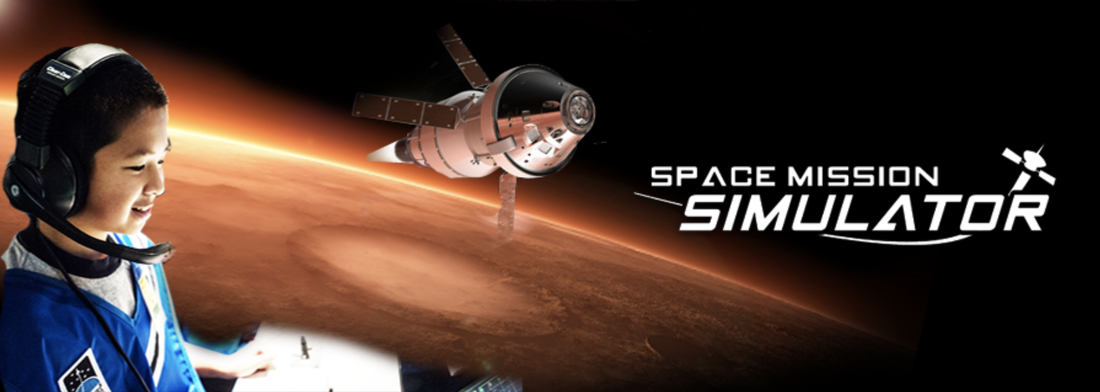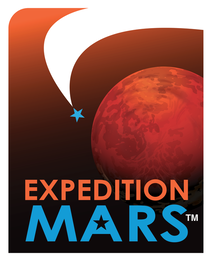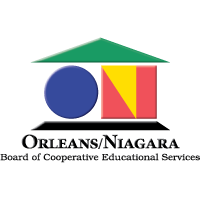Expedition Mars:
|
The year is 2076. A handful of facilities have been established on Mars. The primary human habitat is not on Mars, but on one of its moons, Phobos. The Mars Transport Vehicle (MTV), carries parts to build a remotely operated vehicle (ROV) to continue the search for the evidence of life and water.
|
Use code "BOCES" to defer payment and set up invoice.
Use code "BOCES" to defer payment and set up invoice.
Schools receiving funding support through BOCES are invoiced $750 per mission.
Request a quote from us to be submitted alongside BOCES paperwork.
If you do not qualify for BOCES reimbursement, please click "public space missions" at the top of the page.
Request a quote from us to be submitted alongside BOCES paperwork.
If you do not qualify for BOCES reimbursement, please click "public space missions" at the top of the page.
***We are a COSER for Orleans/Niagara, and Erie 1 BOCES***
Reimbursement applicable through: A407 Arts-In-Education Program
COSER reimbursement guide
Reimbursement applicable through: A407 Arts-In-Education Program
COSER reimbursement guide
Interactive Learning Experience
Flying a mission is not only fun, but it's also a great exercise for the development of Problem Solving, Team-work, Math, Science, Art and Technology Process Skills. Mission activities are also based on curriculum aligned with New York State Learning Standards.
Each mission includes...
PRE-MISSION TRAINING AND SUPPORT
In advance of visiting a Center, teachers can receive training and lessons designed to prepare their students for the Mission. Classroom activities and content emphasize the importance of teamwork and communication, and teachers can help students understand key concepts critical to achieve success. Students learn about all the roles and responsibilities of each team and apply for the job they believe would best fit their skills.
CLASSROOM CONNECTIONS
Teachers can be provided with resources to help extend the Challenger Center experience into the classroom. Students can discuss and reflect on data gathered during the Mission, conduct post-flight briefings, stage news conferences, write reports, and discuss the various STEM careers they were exposed to during the Mission.
CLC Missions support NY State STEAM curriculum standards by encouraging:
Flying a mission is not only fun, but it's also a great exercise for the development of Problem Solving, Team-work, Math, Science, Art and Technology Process Skills. Mission activities are also based on curriculum aligned with New York State Learning Standards.
- A space simulation for young people in grades 5 and higher
- A standards based program where Individuals work as a team performing jobs that mirror science & technology in real world careers.
- Individuals assume the role of a mission specialist operating a space station and mission control and must keep the crew safe while facing various problems and challenges.
Each mission includes...
- 2 hour student mission for the whole class
- 4 hours of teacher in-service training
- Pre and post classroom materials specially designed to prepare students for each mission
- Free planetarium program for 2 classes when booking 30+ participants
PRE-MISSION TRAINING AND SUPPORT
In advance of visiting a Center, teachers can receive training and lessons designed to prepare their students for the Mission. Classroom activities and content emphasize the importance of teamwork and communication, and teachers can help students understand key concepts critical to achieve success. Students learn about all the roles and responsibilities of each team and apply for the job they believe would best fit their skills.
CLASSROOM CONNECTIONS
Teachers can be provided with resources to help extend the Challenger Center experience into the classroom. Students can discuss and reflect on data gathered during the Mission, conduct post-flight briefings, stage news conferences, write reports, and discuss the various STEM careers they were exposed to during the Mission.
CLC Missions support NY State STEAM curriculum standards by encouraging:
- Asking Questions and Defining Problems
- Planning and Carrying Out Investigations
- Analyzing and Interpreting Data
- Obtaining, Evaluating, and Communicating Information
- A Culture of Inquiry




